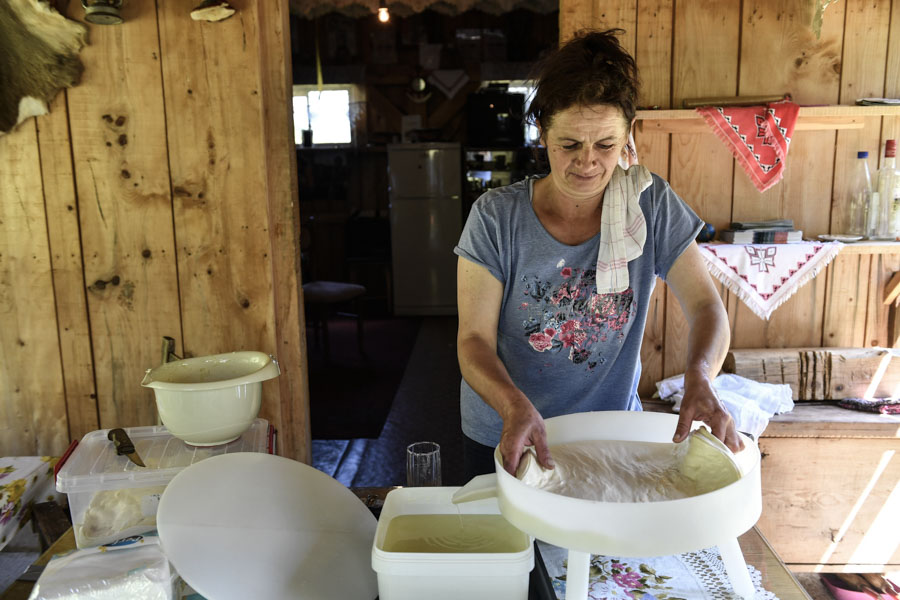Montenegro’s farmers see opportunities amid tourism boom
 Kolasin, Montenegro - Cheese producer Gordana Dulovic at work – making folded cheese
Kolasin, Montenegro - Cheese producer Gordana Dulovic at work – making folded cheese- Montenegro’s natural beauty and untapped local gastronomic culture are creating interesting opportunities for local farmers
- Producers see promising growth in rural hospitality and in supplying hotels and restaurants
- New gastronomy route and an atlas of typical Montenegrin food to help strengthen livelihoods and safeguard traditions in less-visited northern mountainous region
The FAO and the European Bank for Reconstruction and Development are helping Montenegrin farmers seize opportunities in rural hospitality – selling their products directly to tourists – and supporting them in supplying hotels and restaurants with high-quality local foods.
Today’s fair at Delta City, a shopping centre in Montenegro’s capital Podgorica, showcased market-ready products from family farms in northern Montenegro, which included traditional cuisine from the country’s mountainous regions.
The event, organised by EBRD and FAO in collaboration with the Regional Development Agency for Bjelasica, Komovi and Prokletije, attracted representatives from travel agencies, hotels, restaurants, government ministries, rural tourism associations, development partners and farmers.
The EBRD and FAO have worked closely with Montenegro’s Ministry of Sustainable Development and Tourism, Ministry of Agriculture and Rural Development, farmers and other partners to develop sustainable agritourism in the country’s less-visited mountainous region.
This presents an exciting opportunity to grow Montenegro’s tourist industry, which is currently focused on the coastal region.
Their work has led to improved regulations on rural tourism, stronger links between small-scale producers, hotels and restaurants and a better understanding of how to build tourism around local gastronomy.
Thanks to the initiative, an Atlas of typical Montenegrin food, including geographically-protected cured meats and cheeses unique to the country, is available.
And 45 traditional food products are now market-ready with improved packaging and labelling, including food safety analyses and product narratives.
A new roadmap, unveiled at today’s fair, offers advice for advancing these efforts, including scaling up an innovative business-to-business ordering on a locally-owned web marketplace.
This will make it easier for farmers to sell to retailers, restaurants and hotels across Montenegro, shortening food supply chains and shrinking the sector’s carbon footprint.
The EBRD/FAO initiative has also led to the creation of a gastronomy route in the northern region.
Rural households and chefs along the route have been trained on how to store and cook local products in line with hygienic standards, and to adapt traditional recipes for today’s consumers.
Together these efforts are strengthening livelihoods, safeguarding traditions and bringing more women and young people into the supply chain.
The local food experience will continue on 15 February in Podgorica where a famous regional chef will headline a pop-up dinner featuring the traditional family farm products.
Gastronomy and traditional foods are cultural touchstones. Getting the word out on local foods and agritourism – and their potential economic, cultural and environmental benefits – will help build a sustainable and inclusive industry in Montenegro.
